What is RIGID Packaging?
Most of the packaging we see are boxes made of thin chipboard or corrugated cardboard, which can be folded out of layouts or structures glued and flattened. These are popular folding boxes that are practical and attractively priced.
However, for luxury products, you may need PREMIUM boxes, or set-up boxes made of stiff paperboard, often a few millimetres thick, covered with fine kraft paper with a textured surface, embellished not only with conventional print but also with foil, UV varnish or hot stamping in various colours. Solid boxes are heavier and are delivered fully made (formed), therefore, they cannot be packed into sheets. Due to their production technology, rigid boxes are an expensive packaging option for products that need a luxurious feel.
A brief overview of the manufacturing process for RIGID boxes is shown in the illustration below.

A: 1-2 mm thick book cardboard
B: Wrapping paper
C: Wrapping paper is glued to the outer walls of the packaging
D: Lips of the wrapping paper cover the edges and are glued inside of the packages
Rigid box models
Rigid packaging is mainly used for board games, gifts and luxury goods (such as jewellery). This type of box is used to pack expensive equipment and instruments that not only need to be well protected, but also be put in and taken out of the box many times and the box itself needs to be stored for a long time. The main models are listed below.
Topload
The most popular model, which can be complemented by a transparent window on the lid and various inserts to hold items in the box.

Shoulder neck
A more ornate bottom-cover model with an additional detail, the „neck“, which may come in a colour different than of the box.
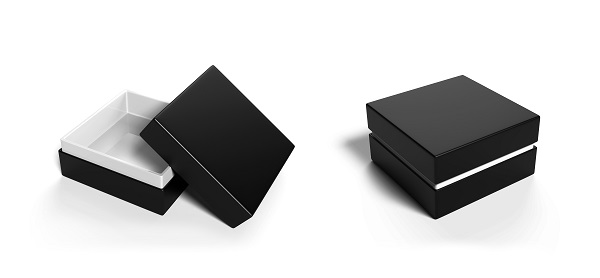
Box with magnetic closure
Practical and popular model with hinged lid and magnetic closure.
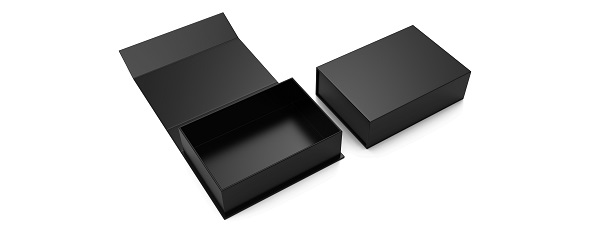
Box with ribbon
Similar in design to boxes with magnetic closure, but using a ribbon instead of magnets. The ribbon needs to be tied neatly.
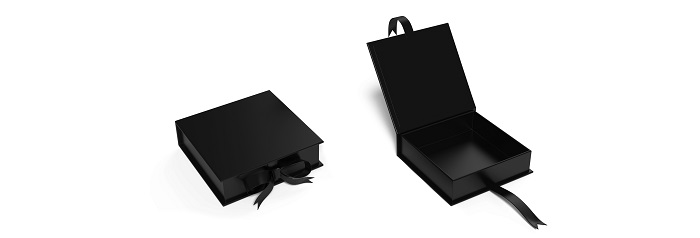
Drawer style
Two boxes stacked on top of each other. The inner box-drawer has a tab (often a ribbon) that can be used to open the structure. The outer box can be a sleeve with both open ends or with only one open end.
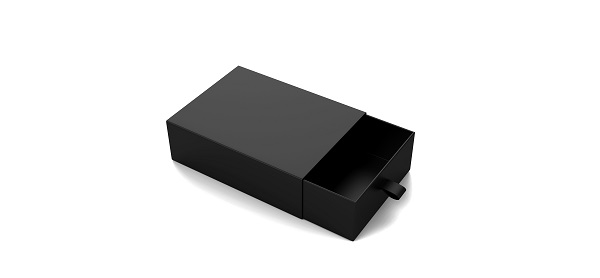
How much do RIGID boxes cost?
Rigid packaging is the most expensive of all types. If you need a small number of these packs, be prepared to pay EUR 4-5 per box, while larger boxes can cost even more.
There is no doubt about it – rigid packaging is appealing to everyone because it is aesthetically pleasing and long-lasting. But before you ask for the cost of making these boxes, make sure they are suitable for your product. If your product is not expensive, such as macaroon biscuits, the packaging may end up costing more than the goods it contains.
Think about sustainability too. After eating a handmade exquisite chocolate candy packed in a PREMIUM rigid box, you will probably be faced with the dilemma of how and where to sort the packaging. Certainly not all boxes in this category will be environmentally friendly and recyclable.
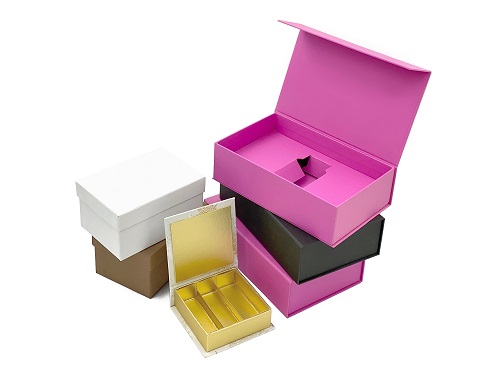
Think about storage
It should be remembered that rigid (RIGID) boxes do not collapse, thus they take up a lot of storage space.
For example, 100 A4 folding micro corrugation boxes of 305x215x85 mm can be packed in two 730x90x680 mm packing boxes and could be freely placed on a shelf, while 100 rigid non-folding boxes of this size would be packed on a wooden pallet of approximately 1200x800x1000 mm.
All content published on this site is the exclusive property of UAB SUPERBOX. Any partial and/or total reproduction of the website SUPERBOX is strictly prohibited without the prior written consent of UAB SUPERBOX.








Comments : 0